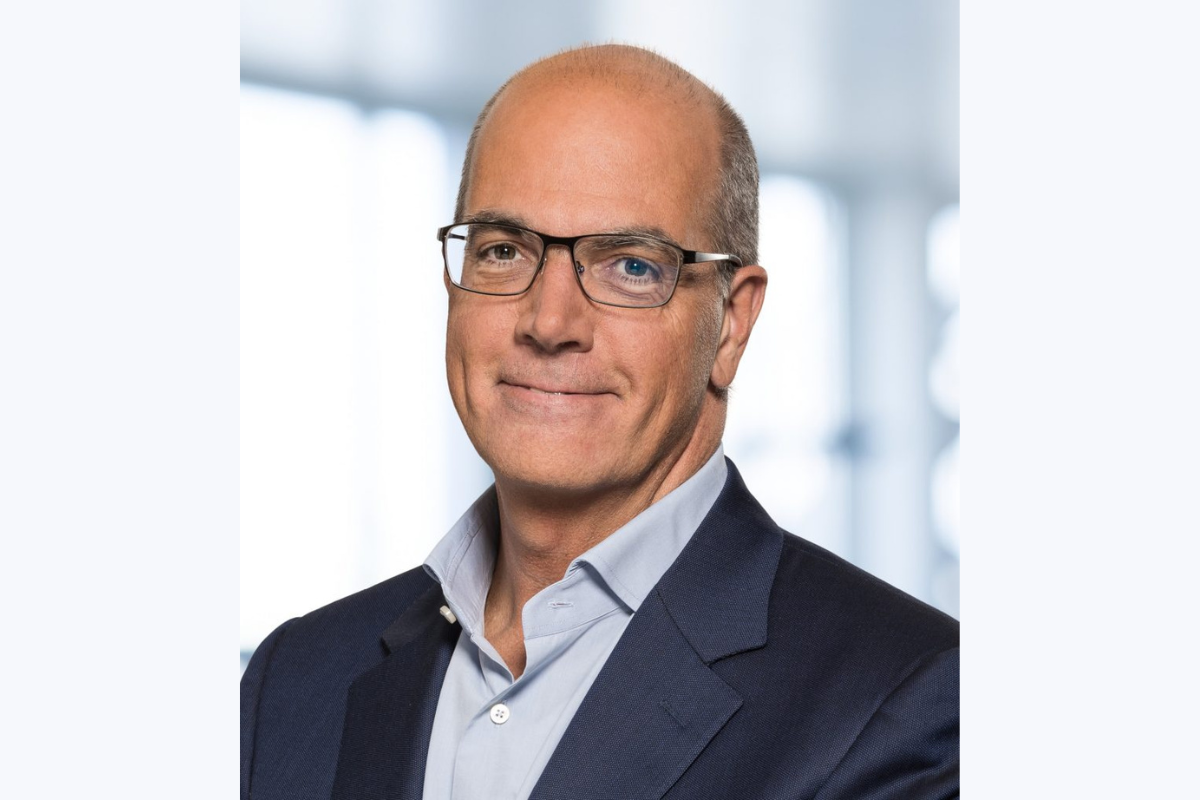No Time to Lose: Claudio Facchin
As a technology leader, Hitachi Energy CEO Claudio Facchin has accepted the challenge of driving innovation to take the world’s energy systems into the future.
When ABB Power Grids became a part of Hitachi Group through a joint venture company between ABB and Hitachi, the resulting Hitachi Energy was to be a fresh start in a sector in the middle of the energy transition.

"I like to see us as a two-and-a-half-year-old startup with more than two centuries of heritage from a technology standpoint,"CEO Claudio Facchin tells The CEO Magazine. "It’s a company of 40,000 talented people that love their work. We’re a global leader in terms of power grids and mission-critical infrastructure, but we’re a newly formed company."
The consolidation of Hitachi and ABB’s resources was the beginning of a journey, intended to help its customers — and the industry — accelerate an energy transition.
"Our customers need to know what our plans are, whether we’re in it for the long term, where we’ll invest," Facchin says. "So I’ve worked with my executive team, my board and Hitachi’s executives to craft a new 2030 plan."
I like to see us as a two-and-a-half-year-old startup with more than two centuries of heritage from a technology standpoint.
Last June, Hitachi Energy announced that plan, which emphasized a modern energy system that will work to advance a sustainable energy future for all.
"Of course, that means strengthening our core technology," Facchin says. "But at the same time, I wanted to make sure that we were prepared to go a bit beyond our comfort zone, or as I call it, we are going beyond the grid into the mining industry, oil and gas and transportation."
That place is only a few years away, but the energy landscape is expected to be almost unrecognizable if sustainability can be achieved. It’s predicted that electric vehicle sales, for instance, will experience a boost of 18 times what they are today. Meanwhile, emissions must drop by 20 percent by 2030 and 90 percent by 2050.
Complex future
The variability of the renewable energy sources that will achieve these results will be more complex to manage than in years gone by, a reality Facchin accepts as an industry-wide challenge.
"We have everything we need, we can do it all ourselves," he says. "At the same time, to do what we do best, we have to work with partners that are best at doing what complements our technology and solutions."
In that way, he says, Hitachi Energy will allow its customers, and ultimately society, to leverage that innovation at the speed and scale required.

Digitalization is key to be able to manage the higher complexities of the future energy grid.
"There’s no doubt we’re in a very energizing and motivating momentum of growth," he says. "This energy transition is giving us so many opportunities, but as a leader in the space, we have to push the boundaries of technology, innovation and operation."
And Facchin’s favorite place to push is the digital edge.
"Digitalization is key to be able to manage the higher complexities of the future energy grid," he says. "Hitachi has invested a tremendous amount of resources, money and focus on developing the IT and IoT side, and that’s allowed us to differentiate our offerings and stand ready to contribute to the transition."
Decades of experience
At such an exciting time for the industry, Hitachi Energy is lucky to have Facchin at the helm. Born in Venezuela to an Italian family, he joined ABB more than 25 years ago and traveled the world with the company.
"I was in France, Switzerland and China with ABB," he says. "For the last four years of ABB Power Grids’ existence, I was President of the ABB Power Grids business."
When the deal with Hitachi went ahead in mid-2020, Facchin moved into the role of CEO of the resulting Hitachi ABB Power Grids. Two years later, the streamlined name of Hitachi Energy symbolized a company that had the agility and expertise to be future ready.
"So although we’ve been recognized as a global leader for decades, we’re creating our own new identity," he says. "With a team this trusted and trained, it’s been a smooth and exciting process."
The freshly minted Hitachi Energy was quick to define its purpose.
"That was really around the future of sustainable energy," he says. "We want to make sure what we do allows this energy system to be available to all. We can’t leave anyone behind in this transition."
The kind of energy transition envisioned by Facchin and his team is only possible if there’s innovation in collaboration, he says.
This is an unprecedented moment in the history of our industry, and we have not only our own goals to meet, but the need to contribute to the greater good.
"We need to work across sectors, across stakeholders, across the entire value chain and even geographies," he says. "One of our clearest distinctions in the industry is that we’re a truly global company, and this isn’t a problem for us."
Hitachi Energy has already made inroads in that respect. In February, it opened a new high-voltage direct current (HVDC) plant in Chennai, India. The factory’s output will help accelerate the transition.
"Going forward, we plan to integrate offshore wind into the offshore grid, and HVDC technology is a perfect fit for that," Facchin claims.
But Facchin has identified a bottleneck that must be overcome.
Growing the industry
"As a sector, and we as a leader in that space, there needs to be more investment in strengthening, expanding and enhancing the talent pool," he says.
The good news is that Facchin sees positive momentum across the sector.
"When we embarked on this journey we made it very clear we are who we are because of the technology, because of our spirit of innovation," he says. "We, along with our ecosystem of partners, are now in the middle of an almost perfect storm. This is an unprecedented moment in the history of our industry, and we have not only our own goals to meet, but the need to contribute to the greater good."
As a technology leader, we always have a duty to drive change.
But Hitachi Energy has the two foundations that will take it to where it wants to be tomorrow – innovation and people. Whether that will be enough to bring the entire industry with it into the future remains to be seen, but it won’t be for lack of trying.
"As a technology leader, we always have a duty to drive change," Facchin says. "It’s something we challenge ourselves to do all the time, and we motivate others to do the same."